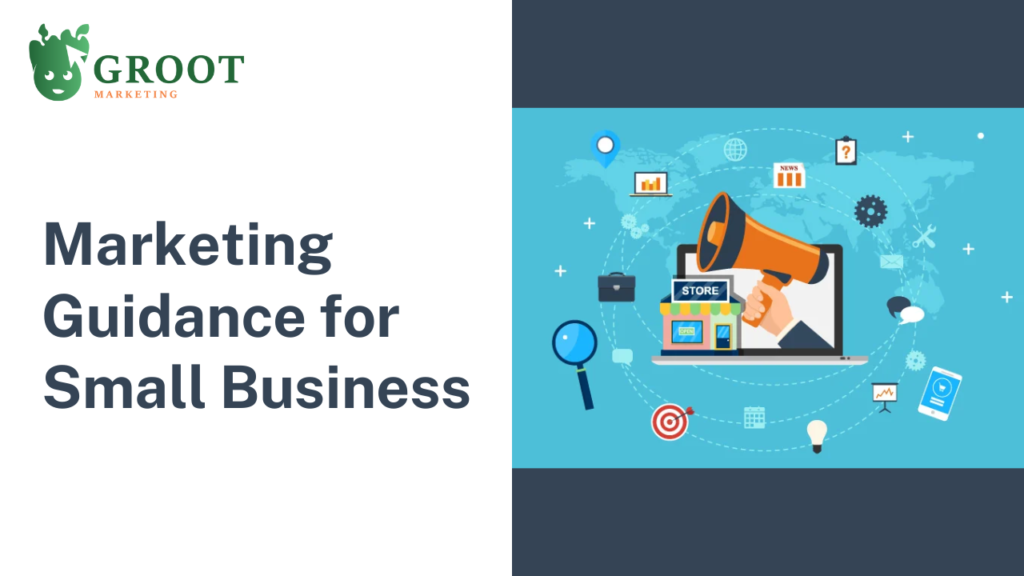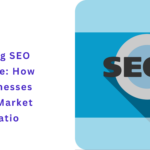If you have a small business and not much money for marketing, it can be tough. But don’t worry! With smart strategies, you can still promote your business well. This blog will give you helpful tips and secrets for marketing your small business successfully without spending too much money. It will teach you how to do it step by step.
Understand Your Target Audience
The first step in any marketing campaign is understanding your target audience. By defining your ideal customer, you can change your messaging and marketing efforts to resonate with them. Start by conducting market research to gather information about your target audience’s demographics, interests, and pain points. This data will help you create buyer personas, which are fictional representations of your ideal customers.
Once you have a clear understanding of your target audience, you can develop marketing messages that speak directly to their needs and desires. By crafting personalized and relevant content, you will attract the right customers and drive conversions.
Develop Your Business Growth Strategies
To effectively market your small business, it is crucial to develop business growth strategies. These strategies outline your goals and the steps you will take to achieve them. Start by setting SMART goals – specific, measurable, attainable, relevant, and time-bound. For example, your goal could be to increase website traffic by 20% within six months.
Next, identify the key tactics and channels you will use to reach your target audience. This could include social media marketing, email marketing, content marketing, search engine optimization (SEO), or paid advertising. Each tactic should align with your goals and target audience.
Importance of Digital Marketing
In today’s digital age, having a strong online presence is essential for small businesses. Digital marketing offers cost-effective methods to reach a wider audience and generate leads. It boundes various strategies, including search engine marketing (SEM), social media marketing (SMM), content marketing, and email marketing.
One of the primary advantages of digital marketing is its ability to track and measure results. With tools like Google Analytics, you can monitor website traffic, conversion rates, and other key metrics. This data allows you to optimize your marketing guide efforts and achieve better results.
Choose the Best Digital Marketing Services
When it comes to digital marketing, there are numerous services and tools available. It’s essential to choose the ones that align with your goals and budget. Here are some popular digital marketing services to consider:
Search Engine Optimization (SEO): SEO improves your website’s visibility on search engines, helping you rank higher in organic search results.
Pay-Per-Click (PPC) Advertising: PPC allows you to display ads on search engine results pages. You only pay when someone clicks on your ad.
Social Media Marketing: SMM involves using social media platforms to promote your business and engage with your target audience.
Email Marketing: Email marketing is a cost-effective way to communicate with your customers and generate leads.
Find the Right Digital Marketing Agency
If you don’t have the time or expertise to handle your digital marketing efforts in-house, outsourcing to the best digital marketing agency is a smart choice. However, finding the right agency can be challenging. Here are a few tips to help you make the best decision:
Define your goals: Before searching for an agency, clearly define your marketing goals and expectations. This will help you find an agency that specializes in your specific needs.
Research and compare: Take the time to research and compare different agencies. Look for reviews, portfolios, and case studies to evaluate their track record and expertise.
Ask for recommendations: Reach out to fellow business owners or industry professionals for recommendations. Word-of-mouth referrals can be invaluable in finding a reliable agency.
Request proposals: Once you’ve narrowed down your options, request proposals from the agencies you’re considering. Compare their services, pricing, and strategies to make an informed decision.
Create a Comprehensive Marketing Plan
A comprehensive marketing plan serves as a roadmap for your marketing efforts. It outlines your goals, target audience, strategies, and tactics. Here are the essential elements of a marketing plan:
Executive summary: Provide an overview of your business and marketing objectives.
Market analysis: Conduct a thorough analysis of your industry, competitors, and target audience.
SWOT analysis: Identify your business’s strengths, weaknesses, opportunities, and threats.
Marketing goals: Set specific, measurable, attainable, relevant, and time-bound goals.
Target audience: Define your ideal customer and create buyer performance.
Marketing strategies: Outline the key strategies you will use to reach your target audience.
Tactics and channels: Specify the tactics and channels you will employ in your marketing efforts.
Budget and timeline: Allocate a budget and set deadlines for your marketing activities.
Performance measurement: Define key performance indicators (KPIs) and metrics to track and measure your marketing success.
Measure the Success of Your Marketing Efforts
To ensure the effectiveness of your marketing efforts, it’s important to measure and analyze your results. Here are some key metrics to track:
Website traffic: Monitor the number of visitors to your website and the sources of traffic.
Conversion rates: Measure the percentage of visitors who take a desired action, such as making a purchase or submitting a contact form.
Engagement metrics: Analyze metrics like social media likes, shares, comments, and email open rates to measure audience engagement.
Return on investment (ROI): Calculate the return on investment for your marketing campaigns to assess their profitability.
By regularly reviewing these metrics, you can identify areas of improvement and make data-driven decisions to optimize your marketing efforts.
Conclusion
Marketing your small business guidance doesn’t have to be a discouraging task. By understanding your target audience, developing smart strategies, utilizing digital marketing services, and measuring your results, you can unlock the secrets to successfully market your small business. Remember, it’s a journey that requires continuous learning and adaptation. So, take these insights, implement them, and watch your business thrive.







